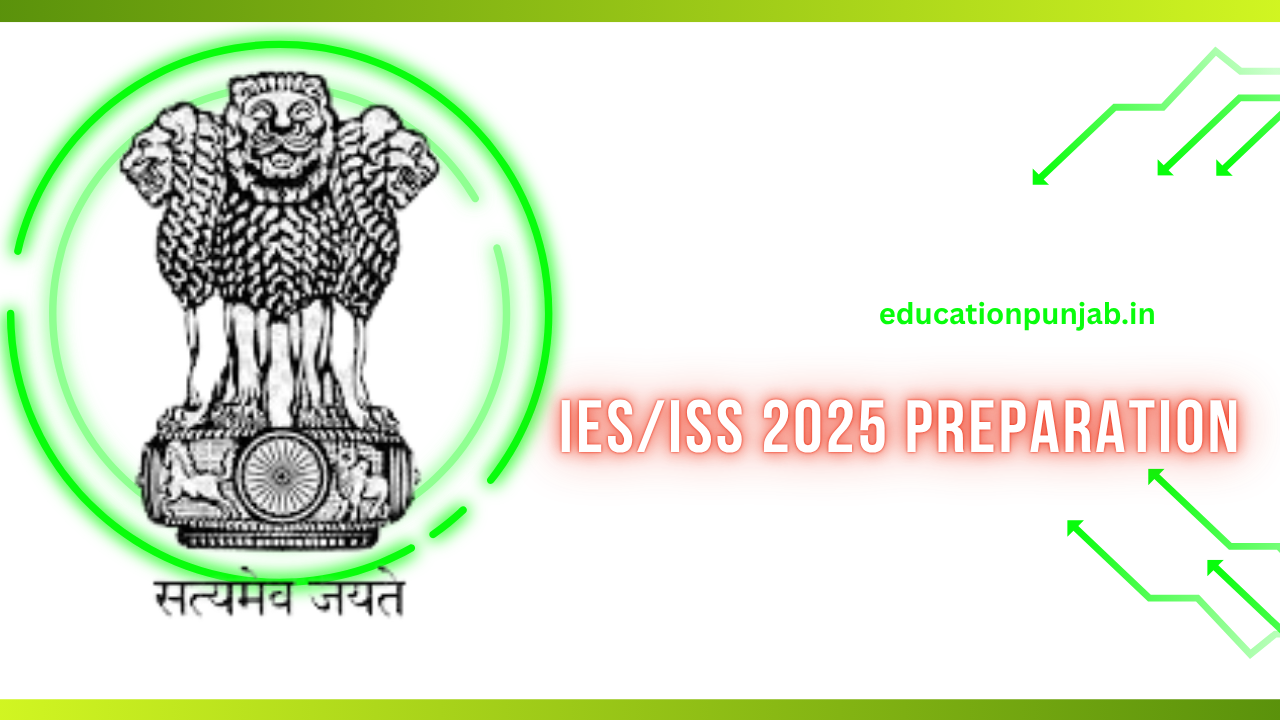
IES/ISS 2025 Preparation
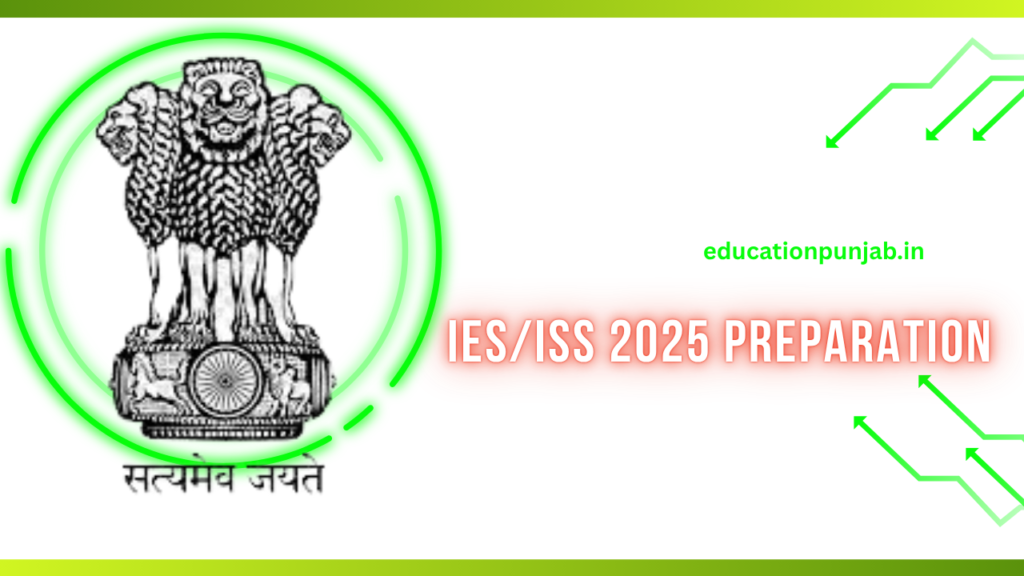
IES/ISS 2025 Preparation: The UPSC Indian Economic Service (IES) and Indian Statistical Service (ISS) Examination 2025 is a prestigious opportunity for candidates to join elite Group A services under the Government of India, focusing on economic policy (IES) and statistical analysis (ISS).
Scheduled for June 20–22, 2025, the exam recruits for 47 vacancies (12 IES, 35 ISS), offering reserved category candidates (SC, ST, OBC, EWS, PwBD) benefits like age relaxation, additional attempts, and relaxed cut-offs. This comprehensive, SEO-optimized guide provides detailed preparation strategies, a 6-month study schedule, and tips to start with familiar topics to build momentum, ensuring success in the IES/ISS 2025 exam.
Understanding the UPSC IES/ISS 2025 preparation and Examination 2025
IES/ISS 2025 Preparation and Exam Overview
- Purpose: Recruits for IES (economic policy formulation under the Ministry of Finance) and ISS (data collection and analysis under the Ministry of Statistics and Programme Implementation).
- Vacancies: 47 total (12 IES, 35 ISS), with reservations: 15% SC, 7.5% ST, 27% OBC, 10% EWS, 4% PwBD.
- Exam Dates: June 20–22, 2025, conducted in multiple shifts across India.
- Selection Process: Written exam (1000 marks) + Viva Voce (200 marks).
- Application Period: February 12–March 4, 2025; correction window March 5–11, 2025 (upsc.gov.in).
- Admit Card: Available 2–3 weeks before the exam on upsc.gov.in, downloadable with registration ID or roll number.
- Result: Expected 1–2 months post-exam; final results after interviews in August/September 2025.
Exam Pattern
- IES Written Exam (1000 marks, all subjective, 3 hours each):
- General English (100 marks): Essay, comprehension, précis, grammar.
- General Studies (100 marks): Current affairs, Indian history, geography, polity, environment.
- General Economics-I (200 marks): Microeconomics, macroeconomics, economic thought.
- General Economics-II (200 marks): Public finance, international economics, growth.
- General Economics-III (200 marks): Development economics, environmental economics.
- Indian Economics (200 marks): Indian economy, reforms, agriculture, industry.
- ISS Written Exam (1000 marks):
- General English (100 marks, subjective, 3 hours).
- General Studies (100 marks, subjective, 3 hours).
- Statistics-I (200 marks, objective, 80 questions, 2 hours): Probability, statistical methods.
- Statistics-II (200 marks, objective, 80 questions, 2 hours): Inference, sampling.
- Statistics-III (200 marks, descriptive, 3 hours): Applied statistics, time series.
- Statistics-IV (200 marks, descriptive, 3 hours): Operations research, demography.
- Viva Voce: 200 marks, assessing subject knowledge and personality.
- Negative Marking: One-third marks deducted for incorrect answers in ISS objective papers (Statistics-I and II).
Eligibility
- Age: 21–30 years as of August 1, 2025 (born August 2, 1995–August 1, 2004).
- Relaxations: SC/ST (5 years, up to 35), OBC (3 years, up to 33), PwBD (10 years, cumulative).
- Qualifications:
- IES: Postgraduate degree in Economics, Applied Economics, Business Economics, or Econometrics.
- ISS: Bachelor’s degree with Statistics/Mathematical Statistics/Applied Statistics, or Master’s in these fields.
- Attempts: General/EWS (6), OBC (9), SC/ST/PwBD (unlimited within age limit).
- Fee: INR 200; exempt for SC/ST/PwBD/female candidates.
- Nationality: Indian citizens, or subjects of Nepal/Bhutan, or specific refugees with eligibility certificates.
Why Start with Familiar Topics as IES/ISS 2025 Preparation?
Starting each paper with familiar topics builds momentum, especially for reserved category candidates leveraging extra attempts and relaxed cut-offs for IES/ISS 2025 Preparation. Benefits include:
- Confidence Boost: Reduces exam stress, critical for candidates balancing socioeconomic challenges.
- Time Efficiency: Quick answers on strong topics save time for complex questions, particularly in descriptive papers.
- Error Reduction: Minimizes negative marking in ISS objective papers.
- Strategic Advantage: Allows candidates to maximize scores, securing preferred postings.
Identifying Familiar Topics
- IES:
- General English: Comprehension, grammar (familiar for most graduates).
- General Studies: Polity (reservation policies), current affairs (government schemes).
- Economics: Microeconomics (demand-supply), Indian economy (reforms, agriculture).
- ISS:
- General English/Studies: Same as IES.
- Statistics: Probability, descriptive statistics (often intuitive from undergraduate studies).
- High-Yield for Reserved Candidates: Reservation policies, social sector schemes (e.g., PM-JAY), and applied statistics in public policy.
How to Identify Strengths:
- Review Syllabus: Available on upsc.gov.in or vajiramandravi.com.
- Assess Background: Economics/statistics graduates may excel in core subjects; humanities candidates may prefer General Studies.
- Mock Tests: Use platforms like Vajiram & Ravi to analyze topic-wise performance.
- Past Papers: Solve IES/ISS papers (2015–2024) from upsc.gov.in to pinpoint strong areas.
Best Guide to UPSC Prelims 2025 Preparation
Comprehensive Strategies for IES/ISS 2025 Preparation
1. Master the Syllabus
- General English: Focus on essay writing, comprehension, précis, and grammar.
- General Studies: Cover current affairs, polity (Articles 15, 16), history, geography, environment.
- IES Economics:
- General Economics-I: Microeconomics (consumer behavior), macroeconomics (national income), economic thought (Keynes, Smith).
- General Economics-II: Public finance, international trade, economic growth models.
- General Economics-III: Development economics, environmental economics.
- Indian Economics: Post-independence reforms, agriculture, industry, poverty alleviation.
- ISS Statistics:
- Statistics-I: Probability, distributions, statistical methods.
- Statistics-II: Inference, sampling techniques.
- Statistics-III: Time series, index numbers, applied statistics.
- Statistics-IV: Operations research, demography, econometrics.
2. Use High-Quality Resources for IES/ISS 2025 Preparation
- General English: High School English Grammar by Wren & Martin, The Hindu editorials for essays.
- General Studies: Indian Polity by M. Laxmikanth, India’s Struggle for Independence by Bipan Chandra, The Recitals magazine (Vajiram & Ravi).
- IES Economics:
- Microeconomics by Pindyck & Rubinfeld.
- Macroeconomics by Mankiw.
- Indian Economy by Ramesh Singh.
- Economic Survey and Budget (latest editions).
- ISS Statistics:
- Fundamentals of Statistics by S.C. Gupta.
- Probability and Statistics by DeGroot.
- Introduction to Statistical Theory by Hoel.
- Current Affairs: Yojana, Kurukshetra, Vajiram & Ravi’s Prelims Pointers.
3. Practice with Past Papers and Mock Tests for IES/ISS 2025 Preparation
- Past Papers: Solve IES/ISS papers (2015–2024) from upsc.gov.in to understand question patterns and prioritize familiar topics.
- Mock Tests: Enroll in Vajiram & Ravi’s test series for IES/ISS-specific practice, offering:
- Simulated exam conditions.
- AI-generated performance feedback.
- Topic-wise tests to refine strengths.
- Free Mock Test: Join Vajiram & Ravi’s All India Mock Test (check vajiramandravi.com for 2025 schedule).
4. Leverage Reserved Category Benefits for IES/ISS 2025 Preparation
- Fee Exemption: Save INR 200 (SC/ST/PwBD/female candidates).
- Age Relaxation: Use extra years to build expertise (e.g., SC/ST up to 35).
- Attempts: Refine strategies over multiple attempts (unlimited for SC/ST/PwBD).
- Relaxed Cut-Offs: Aim to exceed minimum marks for competitive postings.
5. Prepare for Viva Voce for IES/ISS 2025 Preparation
- Subject Expertise: Be ready to discuss core economics/statistics concepts and their application (e.g., GDP analysis, NSSO surveys).
- Current Affairs: Stay updated on economic policies, schemes like PM-AJAY, and statistical trends.
- Mock Interviews: Practice with coaching institutes or mentors to improve communication and confidence.
6-Month Study Schedule (December 2024–June 2025)
Assumptions: 6–8 hours daily, starting December 1, 2024, with weekly revisions and mock tests. Adjust based on your pace and prior knowledge to tackle IES/ISS 2025 Preparation.
Months 1–2: Foundation (December 2024–January 2025)
- Goal: Build conceptual clarity, focus on familiar topics.
- Daily Schedule (6–8 hours):
- 2 hours: General English (1 hour grammar/comprehension, 1 hour essay practice).
- 2 hours: General Studies (1 hour polity/history, 1 hour current affairs via The Hindu, Yojana).
- 3 hours (IES): Microeconomics (demand-supply, elasticity), Indian economy basics (reforms, agriculture).
- 3 hours (ISS): Probability (distributions), descriptive statistics (mean, variance).
- 1 hour: Revise notes, read The Recitals.
- Weekly: Solve 1 past paper, analyze strengths (e.g., polity, probability).
- Resources: NCERTs, Indian Polity (Laxmikanth), Fundamentals of Statistics (Gupta).
Months 3–4: Core Subjects (February–March 2025)
- Goal: Deepen subject knowledge, practice descriptive answers.
- Daily Schedule:
- 1.5 hours: General English (précis, essay on economic/social issues).
- 1.5 hours: General Studies (geography, environment, schemes like MGNREGA).
- 3 hours (IES): Macroeconomics (fiscal policy), General Economics-II/III (trade, development).
- 3 hours (ISS): Statistical inference, sampling, time series.
- 1–2 hours: Current affairs (Economic Survey), note-making.
- Weekly: 2 mock tests (1 objective for ISS, 1 descriptive), focus on familiar topics first.
- Resources: Microeconomics (Pindyck), Probability and Statistics (DeGroot), Vajiram & Ravi’s QUEST Notes.
Months 5–6: Intensive Practice for IES/ISS 2025 Preparation (April–June 2025)
- Goal: Simulate exam conditions, refine time management.
- Daily Schedule:
- 1 hour: General English (mock essays, comprehension).
- 1 hour: General Studies (revision, current affairs via Prelims Pointers).
- 3–4 hours (IES): Indian Economics (schemes, reforms), practice descriptive answers.
- 3–4 hours (ISS): Operations research, demography, objective question practice.
- 1–2 hours: Revise weak areas, analyze mock test performance.
- Weekly: 3–4 full-length mock tests, starting with familiar topics (e.g., polity, probability).
- May 2025: Join Vajiram & Ravi’s All India Mock Test for real-time feedback.
- June 1–19: Revise notes, focus on high-yield topics, avoid new material.
Exam Day Strategy (June 20–22, 2025)
- Preparation:
- Carry printed admit card, valid photo ID, caste/disability/EWS certificates.
- Bring black pens, water bottle, analog watch.
- Arrive 30 minutes early at the exam center (details on admit card).
- Written Exam:
- Scan Papers: Spend 3–5 minutes identifying familiar questions (e.g., polity in General Studies, probability in Statistics-I).
- Prioritize: Start with high-confidence topics (e.g., microeconomics, descriptive statistics).
- Time Management: Allocate 1–1.2 minutes per question in ISS objective papers; divide descriptive papers into 30-minute segments per question.
- Descriptive Answers: Use bullet points, diagrams (e.g., demand curves, statistical graphs), and concise writing.
- Stay Calm: Success in familiar topics builds momentum; avoid overthinking to reduce errors.
FAQs for IES/ISS 2025
- How tough is the IES/ISS exam?
Moderately challenging, with descriptive papers requiring in-depth knowledge and objective papers testing speed. - What are the cut-offs for reserved categories?
Lower than general category; exact cut-offs vary yearly (check upsc.gov.in post-exam). - How to access past papers?
Available on upsc.gov.in under “Previous Question Papers.” - Can I prepare for both IES and ISS?
Yes, if eligible, but focus on one based on your academic background. - Where to find coaching?
Vajiram & Ravi, online platforms, or state-sponsored programs for reserved categories.
Conclusion
The UPSC IES/ISS 2025 exam is a golden opportunity for reserved category candidates to secure prestigious roles, leveraging benefits like age relaxation and extra attempts. By starting with familiar topics like polity, microeconomics, or probability, and following a disciplined 6-month schedule, candidates can build momentum and excel. Use high-quality resources like Vajiram & Ravi’s QUEST Notes, practice with mock tests, and stay updated with current affairs. Begin your preparation today, and visit upsc.gov.in or vajiramandravi.com for more details. Your journey to IES/ISS success starts now!

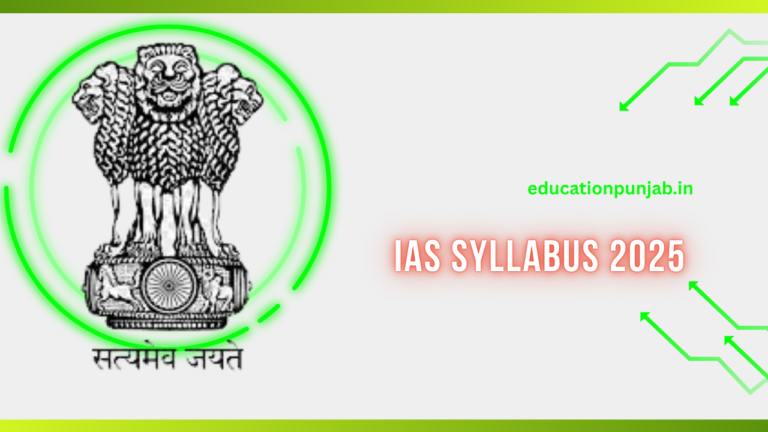
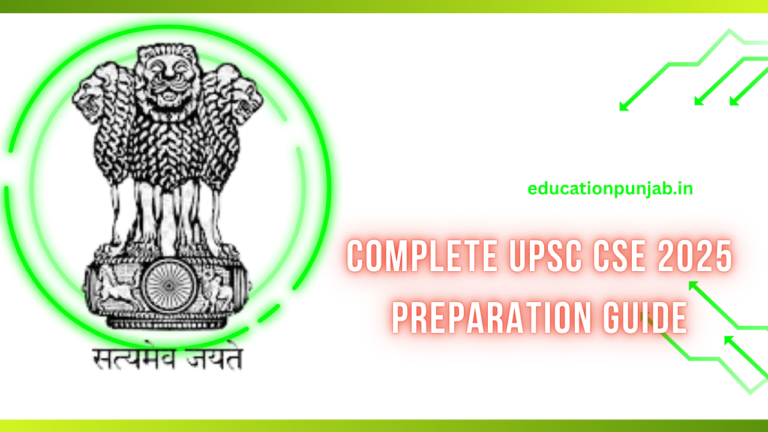
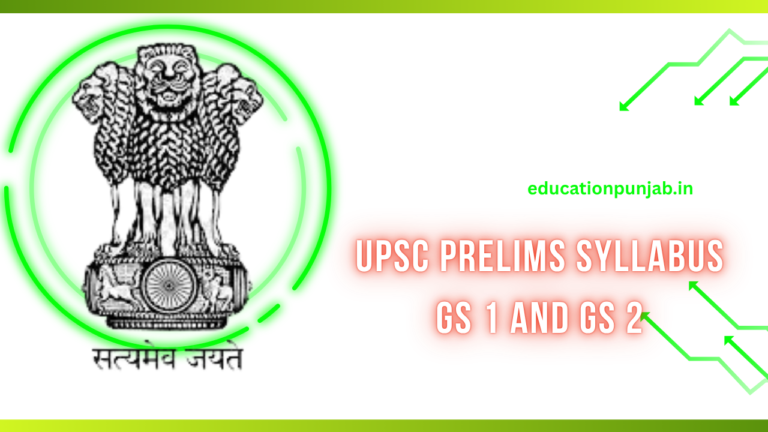



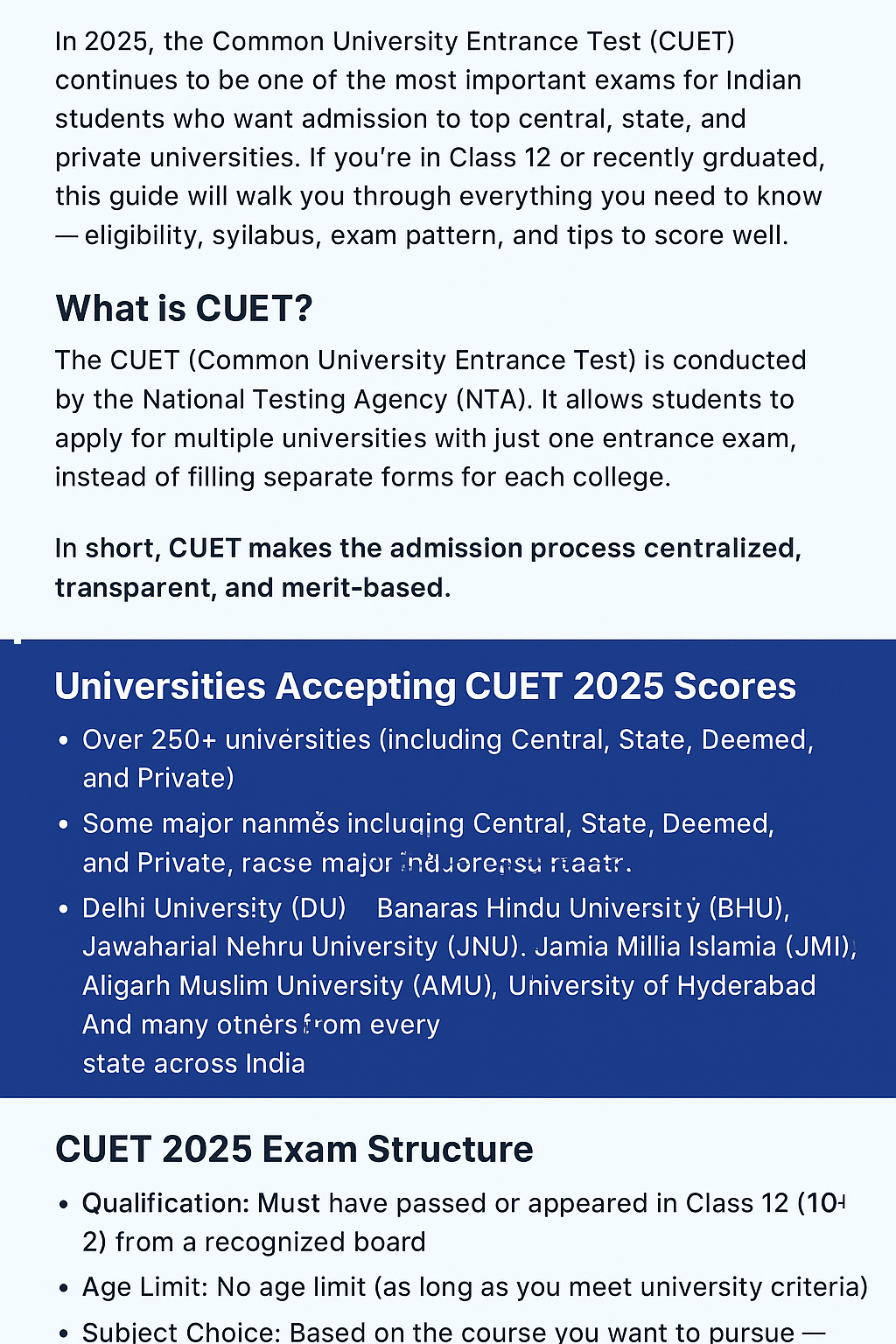
2 thoughts on “Guide to UPSC IES/ISS 2025 Preparation with Study Schedule”
Comments are closed.